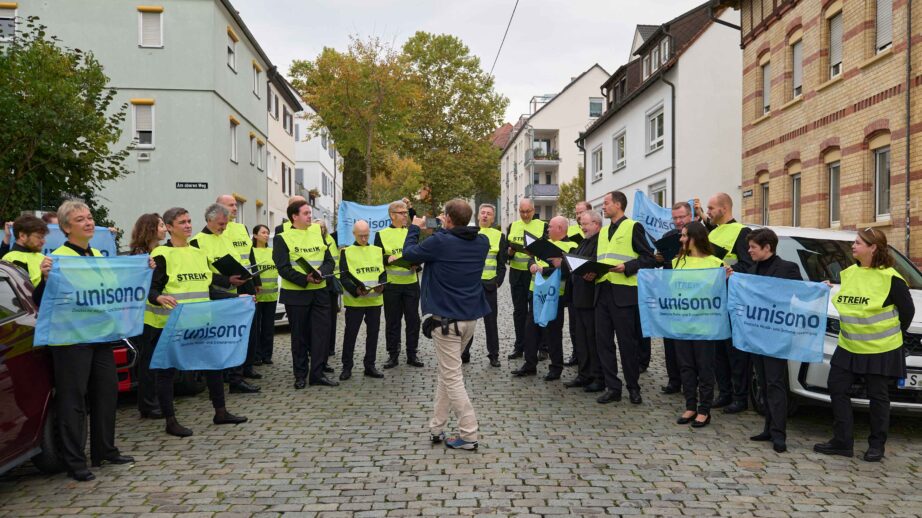70 years in the service of musicians
The German Orchestra Association DOV, the largest lobby group for professional musicians in Germany, has changed its name and is now operating under the name unisono.

The DOV was founded in Düsseldorf in 1952 by professional musicians to jointly represent their cultural and economic interests and promote young artists. In 1971/72, the collective agreement for musicians in cultural orchestras (TVK) agreed with the German Stage Association came into force. This provided musicians in municipal orchestras with comprehensive protection for their employment relationships with specific regulations on working hours and remuneration. It remains an international model to this day. While every orchestra in Switzerland has its own collective employment agreement, which the SMV is involved in drawing up, German orchestras are integrated into a uniform national wage structure. Depending on the size of the orchestra, the orchestras belong to pay groups A - D, although there are numerous exceptions, including for radio orchestras and choirs, which have their own collective agreement.
Detailed collective agreement for all orchestras
The latest "Collective Agreement for Musicians in Concert and Theatre Orchestras", concluded in 2019 between the German Stage Association (Federal Association of Theatres and Orchestras) and the German Orchestra Association, not only meticulously lists all relevant details regarding working conditions, working hours, salary and social benefits in 63 paragraphs on 78 pages, but also regulates, for example, the election, composition and tasks of the orchestra board. Section 17 specifies the distribution of positions in the respective remuneration groups, for example, a so-called Bb orchestra (66 musicians) must have 36 string positions, as well as 4 flutes, 3 oboes, 4 clarinets, 3 bassoons, 5 horns, 3 trumpets, 3 trombones and a tuba for the wind section.
Great appreciation
In 2014, the German theater and orchestra landscape was included in the nationwide list of intangible cultural heritage. The DOV writes that the number and diversity of professional orchestras in Germany is unique in the world, and that concerts and live classical music in concert halls, theaters or at music festivals have forty percent more visitors than the Bundesliga in football stadiums. Nevertheless, it is regrettable that the number of orchestras has fallen from 168 in 1992 to 129 today. The German Music and Orchestra Association unisono considers one of its most important goals to be to completely stop the loss of permanent jobs and to commit itself to creating new jobs in the long term. Since 2002, unisono has had a cooperation agreement with the service trade union ver.di. Strikes are also held from time to time to enforce wage demands (see picture).
Enormous challenges
unisono represents the interests of around 12,800 members in professional orchestras and radio choirs as well as an increasing number of freelancers, students and lecturers at music academies. The unionization rate in orchestras and radio ensembles is over 90 percent. For some years now, the association has received a large influx of freelancers, who have relied on strong representation of their interests, primarily due to their experiences during the pandemic. unisono Managing Director Gerald Mertens says: "Maintaining and expanding good framework conditions for practising the music profession is at the heart of our work, regardless of whether our members work on a permanent or freelance basis. Together and in solidarity, we represent the interests of our members most successfully. We are facing the major challenges of social change, climate change and other overlapping crises." unisono is a founding member and board member of the "Netzwerk Junge Ohren" (Young Ears Network), of which the SMV is also a sponsor. This institution brings together protagonists from all areas of music education in German-speaking countries so that they can regularly exchange ideas and learn from each other.








